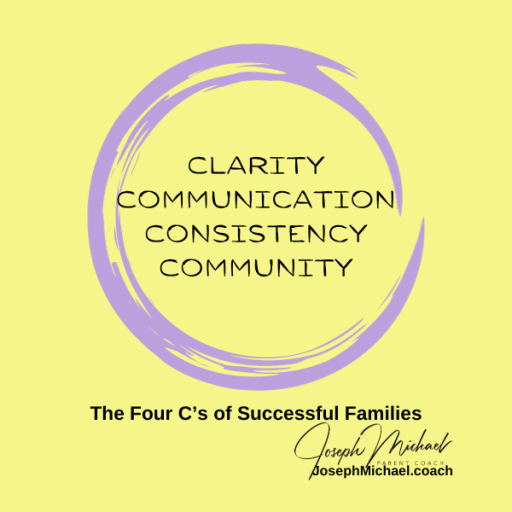
Love and Boundaries Create Healthy Relationships

Love is often thought of as limitless—an open, giving force that knows no bounds. And yet, the healthiest expressions of love exist within clear and respectful boundaries. Contrary to what some might believe, boundaries do not limit love; they protect and sustain it. When love and boundaries work together, they create relationships rooted in trust, respect, and emotional well-being.
So how do love and boundaries complement each other, and how can we apply them in our family and community relationships?
What Are Boundaries, and Why Do They Matter?
Boundaries are the personal guidelines we establish to protect our physical, emotional, and mental well-being. They define what is acceptable and what is not in our relationships. Healthy boundaries help us:
-
-
- Maintain our sense of self while loving others
- Prevent resentment and burnout
- Communicate our needs effectively
- Create a safe and respectful environment
-
When we set boundaries, we are not withholding love; we are ensuring that love is sustainable, mutual, and nurturing rather than overwhelming, one-sided, or harmful.
Love Without Boundaries: The Risk of Overgiving
When love exists without boundaries, it can lead to unhealthy dynamics:
-
-
- Parental Overgiving: Parents who don’t set limits may struggle with discipline, leading to a lack of structure in their children’s lives. They may also sacrifice their own well-being to “keep the peace,” which can lead to burnout.
- Friendships Without Balance: A friendship where one person is always giving and the other is always taking can create resentment over time.
- Romantic Relationships Without Respect: If one partner continually sacrifices their needs or accepts harmful behaviors in the name of love, the relationship can become unhealthy or even toxic.
-
Love, without boundaries, can become exhausting. Instead of being a force that nurtures both people, it turns into an obligation or burden.
Boundaries Without Love: The Risk of Isolation
While boundaries are essential, they must be balanced with love. If we set rigid, unyielding boundaries without care, we may push people away rather than build strong connections.
For example:
-
-
- A parent who is too strict without warmth may create fear instead of trust.
- A person who sets harsh boundaries without compassion may come across as distant or unapproachable.
- A community that values rules over relationships may struggle to foster genuine belonging.
-
The key is balance—boundaries should be rooted in love, and love should be protected by healthy boundaries.
How Love and Boundaries Work Together
1. Love Provides the Foundation, Boundaries Provide the Structure
Think of love as the foundation of a home and boundaries as the walls. The foundation makes the home strong, but the walls provide safety and security. In relationships, love is what connects us, and boundaries define how we interact in ways that protect and honor one another.
For example, a parent may deeply love their child but still set limits on screen time, bedtime, or respectful communication. The child may not always like these boundaries, but they create a secure, loving environment.
2. Boundaries Communicate Love and Respect
Clear boundaries communicate to others:
-
-
- “I value our relationship enough to be honest about my needs.”
- “I love and respect myself enough to set limits.”
- “I care about you enough to ensure our relationship is mutually respectful.”
-
For instance, in a friendship, setting a boundary might mean saying, “I love being there for you, but I also need time to recharge. Let’s plan a time to talk instead of texting late at night.” This ensures both people’s needs are respected.
3. Love Gives Boundaries Their Flexibility
While boundaries should be clear, they should also be flexible when appropriate. Love allows us to adapt our boundaries with wisdom and discernment.
For example, a couple may have a general boundary about personal space but recognize that during difficult times, more closeness and reassurance are needed. A parent may have firm rules but also show compassion when a child is struggling.
Practical Ways to Balance Love and Boundaries
-
-
- Know Your Own Needs and Limits – Reflect on what is important for your well-being. Do you need alone time? Clear communication? Emotional honesty? Define what makes you feel valued and respected in relationships.
- Communicate Boundaries with Kindness – Boundaries should be expressed with warmth and clarity. Instead of saying, “Stop bothering me,” try “I need some quiet time right now, but I’d love to connect later.”
- Be Consistent, but Compassionate – Healthy boundaries are not about control; they are about care. Consistency is key, but always allow room for understanding.
- Teach Children That Love and Boundaries Go Together – Model for your children that saying “no” doesn’t mean you don’t love someone. Show them how to respect others’ boundaries while also standing firm in their own.
- Recognize That Boundaries Protect Relationships – Setting a boundary does not mean rejecting someone; it means honoring the relationship by ensuring it is built on mutual respect.
-
Love Flourishes Within Healthy Boundaries
When love and boundaries work together, relationships become healthier, stronger, and more fulfilling. Love without boundaries leads to exhaustion; boundaries without love lead to isolation. But when we cultivate both, we create relationships that are safe, nurturing, and lasting.
Boundaries are not a barrier to love—they are the structure that allows love to thrive. By setting and respecting healthy limits, we can build relationships that are full of trust, joy, and deep connection.
Reflection Question: Are there relationships that need boundaries in your life?
Joe is a husband, father, grandfather, author, speaker, educator, course creator, and parent/family coach.
He helps parents develop unity, find clarity, communicate, and develop consistency in their parenting with the Four C’s of Successful Families. You can find his work on social media.
In addition, the Four C’s newsletter is enjoyed by many as it encourages parents to self-care, build their relationships with their partners, and raise their children.
And he loves to golf!








